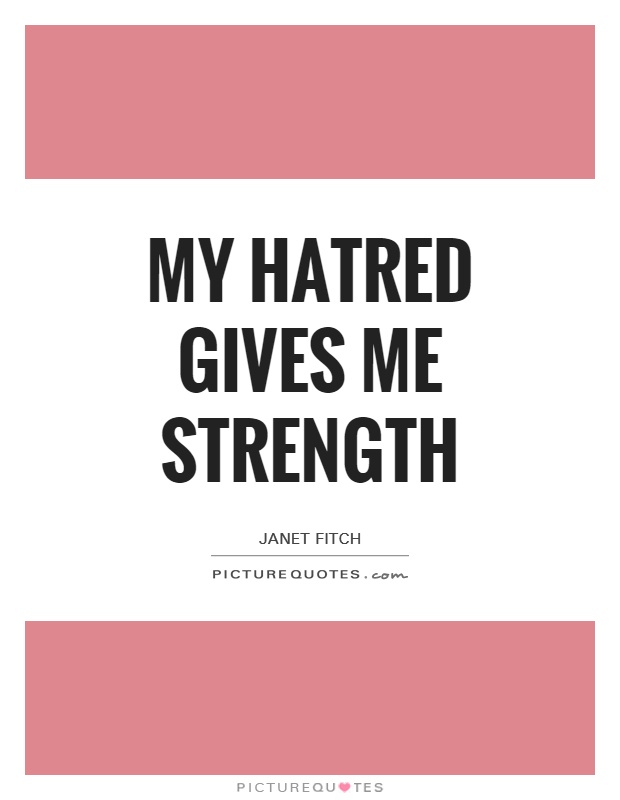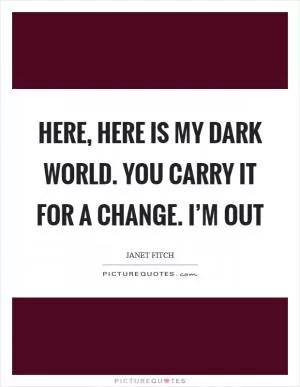My hatred gives me strength

My hatred gives me strength
In the world of Janet Fitch's novels, particularly in her acclaimed work "White Oleander," the theme of hatred and its transformative power is a central and recurring motif. Fitch's characters often grapple with intense feelings of anger, resentment, and loathing, which serve as catalysts for personal growth and empowerment. In this context, the statement "My hatred gives me strength" takes on a complex and nuanced meaning, reflecting the ways in which negative emotions can be harnessed as sources of resilience and determination.In "White Oleander," the protagonist Astrid Magnussen navigates a tumultuous and abusive relationship with her mother, Ingrid, who is imprisoned for murder. Throughout the novel, Astrid's deep-seated hatred for her mother fuels her drive for independence and self-discovery. Despite the trauma and pain inflicted upon her by Ingrid, Astrid's anger and resentment serve as a driving force, propelling her towards a newfound sense of agency and autonomy. In this sense, Astrid's hatred becomes a source of strength, enabling her to break free from the toxic cycle of abuse and forge her own path towards healing and self-actualization.
Similarly, in Fitch's novel "Paint It Black," the protagonist Josie Tyrell grapples with the sudden death of her boyfriend, Michael, and the overwhelming grief and anger that follow. Josie's hatred towards Michael's mother, Meredith, who blames her for his death, becomes a powerful motivator for her to confront her own demons and confront the harsh realities of loss and betrayal. Through her journey of self-discovery and redemption, Josie's hatred transforms into a source of inner strength and resilience, enabling her to navigate the complexities of love, loss, and forgiveness.












 Friendship Quotes
Friendship Quotes Love Quotes
Love Quotes Life Quotes
Life Quotes Funny Quotes
Funny Quotes Motivational Quotes
Motivational Quotes Inspirational Quotes
Inspirational Quotes